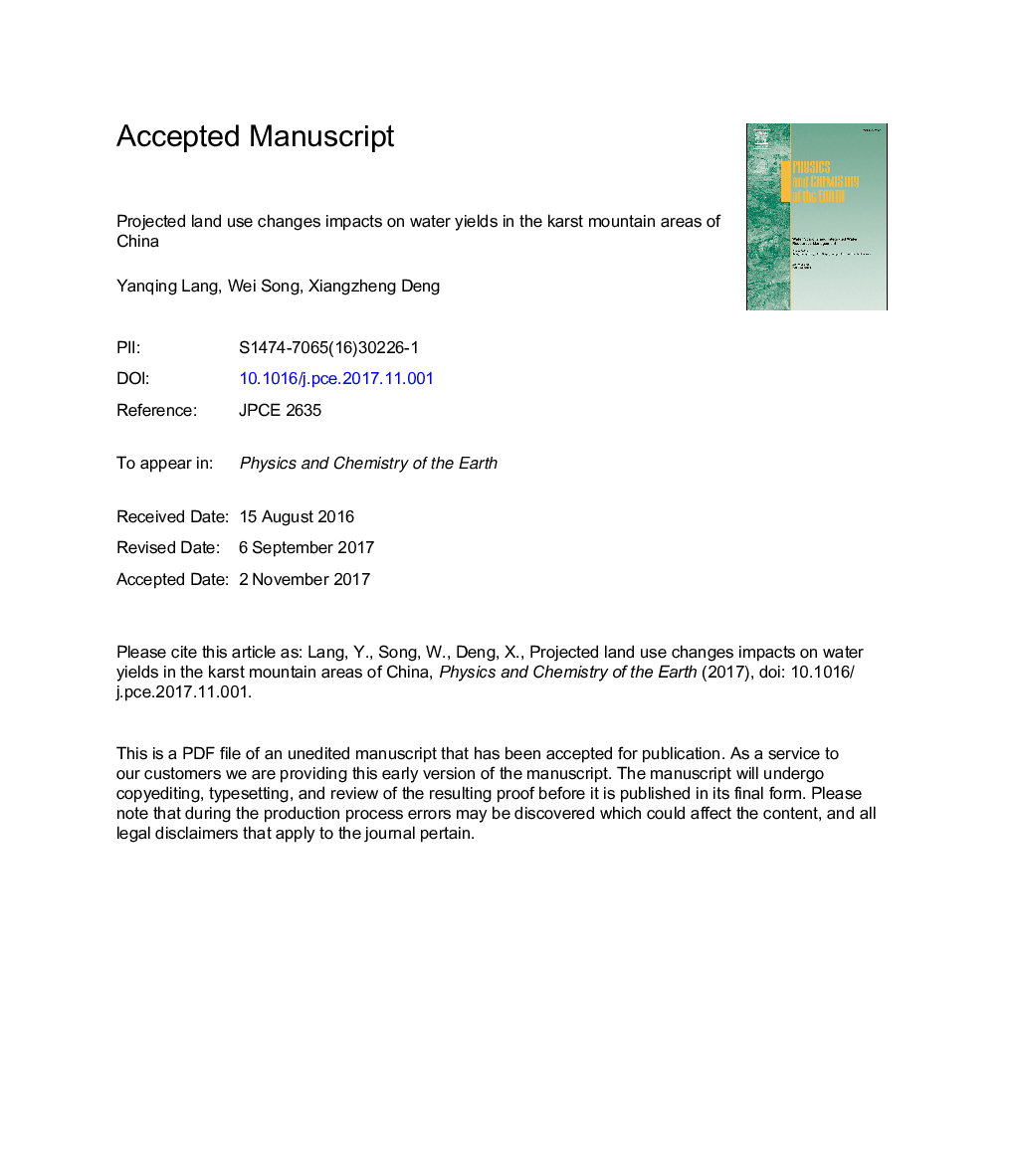| Article ID | Journal | Published Year | Pages | File Type |
|---|---|---|---|---|
| 8912385 | Physics and Chemistry of the Earth, Parts A/B/C | 2018 | 31 Pages |
Abstract
Human-induced land use changes over short time scales have significant impacts on water yield, especially in China because of the rapid social economic development. As the biggest developing country of the world, China's economy is expected to continuously grow with a high speed in the next few decades. Therefore, what kind of land use changes will occur in the future in China? How these changes will influence the water yields? To address this issue, we assessed the water yields in the karst mountain area of China during the periods of 1990-2010 and 2010-2030 by coupling an Integrated Valuation of Ecosystem Services and Tradeoffs (InVEST) model and a Conversion of Land Use and its Effects (CLUE) model. Three different land use scenarios i.e. natural growth, economic development, and ecological protection, were developed in 2030 using the CLUE model. It was concluded that, given land use changes between 1990 and 2010, total water yields in the karst mountain area are characterized by a trend towards fluctuating reduction. However, total water yields of 2030 in the economic development scenario revealed an increase of 1.25% compared to the actual water yields in 2010. The economy development in karst mountain areas of China in the future has a slight positive influence on water yields.
Keywords
Related Topics
Physical Sciences and Engineering
Earth and Planetary Sciences
Geochemistry and Petrology
Authors
Yanqing Lang, Wei Song, Xiangzheng Deng,
